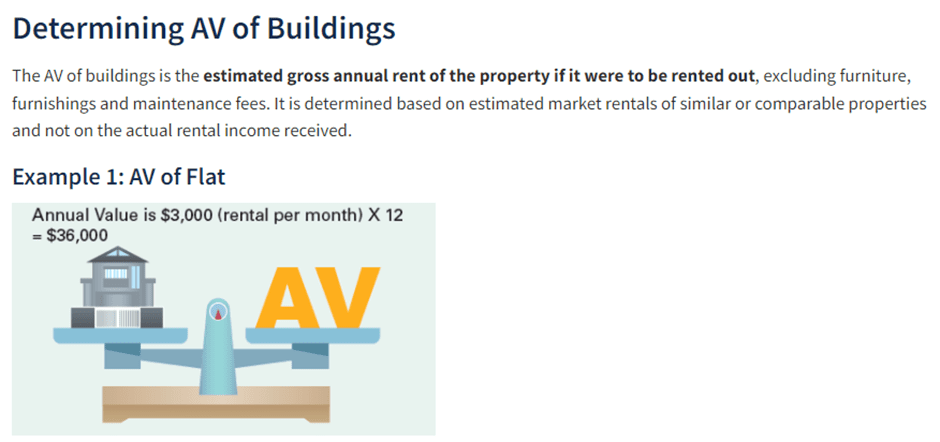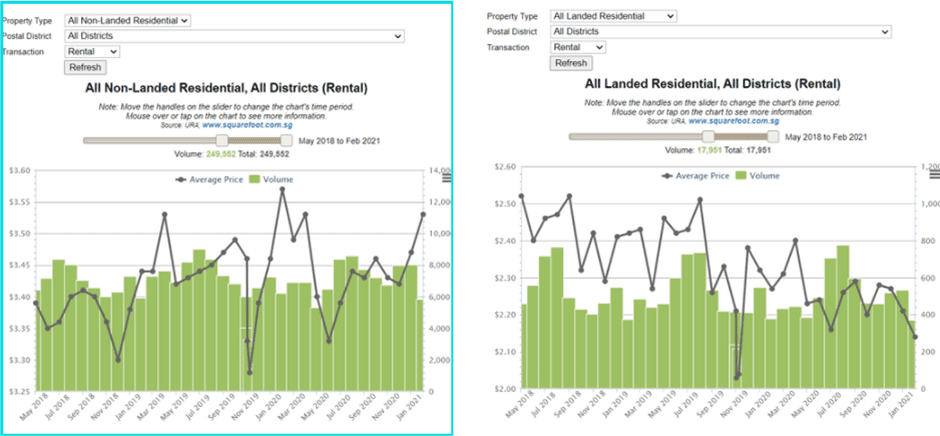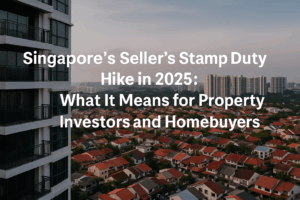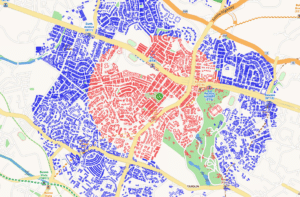
Most of the impact will be felt by this group of homeowners by the nature of this “Wealth Tax”. This form of tax is derived from the value of your home.
For example,
- Properties with annual value at S$30,000: The property tax payable will be as follows – S$3000 (Before 31st Dec 2022), S$3300 (1st Jan 2023) and S$3600 (1st Jan 2024). The increase will be a difference of $600 which may be palatable to most owners.
- Properties with annual value at S$60,000: The property tax payable will be as follows –S$6900 (Before 31st Dec 2022), S$8850 (1st Jan 2023) and S$10,800 (1st Jan 2024). The increase will be a difference of S$3,900 by 2024.
- Properties with annual value at S$90,000: The property tax payable will be as follows – S$12,000 (Before 31st Dec 2022), S$16,950 (1st Jan 2023) and S$21,600 in (1st Jan 2024). The difference will be S$9,600 annually by 2024.

Useful information to note:
- Annual property tax is calculated by multiplying the Annual Value (AV) of the property with the Property Tax Rates that apply to you.
- Non-residential properties such as commercial and industrial buildings and land are taxed at 10% of the Annual Value. Owner-occupied tax rates do not apply to non-residential properties even if you have bought the properties for your own use/occupation.
- Vacant residential property will be taxed at the non-owner occupied residential tax rates and vacant non-residential property will be taxed at 10% of the annual value.
- If you’re wondering how the Annual Value of your property is calculated, here is an example. Alternatively, you can check your property’s Annual Value via the IRAS website.

Conclusion with a twist!
This latest increase in property tax is seen as a “national fund rebuilding event” rather than another set of cooling measures that we have seen at the end of 2021. Property assets have proven to be a good wealth hedge that rides with inflation and the increase in property tax alone will not hamper the current buoyant property market. In the case of non-owner occupied properties, the increase in property taxes is likely to be passed on to potential tenants as rental costs. However, that doesn’t seem to dampen the demand for rental units. As an active Realtor in the rental market, I have personally seen many residential rental units taken up in a few days even without actual physical viewings. A well known local developer has also cited that their existing rental inventory is depleting at an extremely fast rate in 2021/22.

In closing, without first considering other drivers, buyers of such high-end luxury homes who will be occupying them as residential homes will not be hampered. If you’re someone who belongs in the pure investor group and you’re holding back to further evaluate your costs / still worried about the changes, feel free to contact Joshua for a free no-obligation consultation where you can discuss your options in a more in-depth manner.
🚀 Stay Ahead in the Property Market!
Be the first to receive exclusive updates, launch reviews, insider deals, and real-time alerts — directly on your preferred app.
👉 Join our community now:
🌐 Spread Knowledge. Share with Others.
Click any of the icons below to share this content with those who may benefit from it.

Joshua Cheong
Joshua is a dedicated and detailed Real Estate Realtor and together with his Property knowledge, he has successfully served many Clients in their property progression journey.
Enjoy what you have been reading? Join our mailing to get valuable insights delivered to your inbox today.




